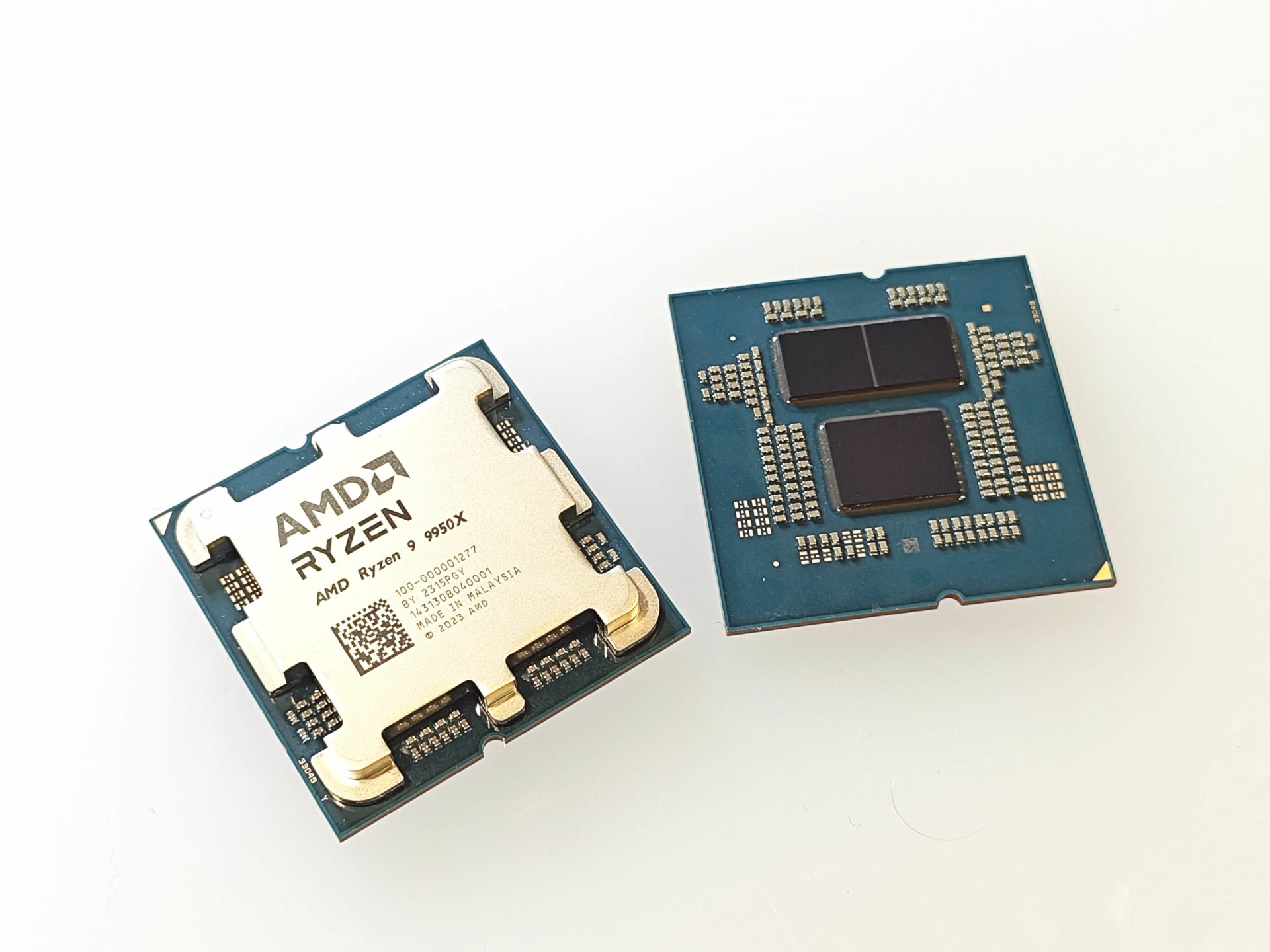Earlier last week, we had the opportunity to review the AMD Ryzen 9000 series Ryzen 7 and 5 processors. Truth to be told, we were expecting a lot more in terms of performance improvements when compared to the Ryzen 7000 series. However, the new processors did fall short. This week, after initial delays, the much anticipated flagship Ryzen 9 9950X and Ryzen 9 9900X are finally here. Will these new processors change our impression of the new Zen 5 processors, or will leave us discontented?
The Ryzen 9 processors have always held AMD’s flags high. When it comes to the Ryzen 9 9950X, AMD has showed us what “no-compromise” means, pairing both high frequencies and high number of cores for it. At this point, we would really care less about efficiency. That’s why, the Ryzen 9 9950X is rated at a TDP of 170W. The Ryzen 9 9900X, which is a 12-core part, comes in at 120W.
So much has been said about Zen 5, with its increase in IPC and improved efficiency. How do these actually translate to real world performance? Read on to learn more.
| AMD Ryzen 9 9900X | AMD Ryzen 9 9950X | |
|---|---|---|
| Cores/ Threads | 12/24 | 16/32 |
| Max Boost | 5.6GHz | 5.7GHz |
| Base Clock | 4.3GHz | 4.4GHz |
| L2 Cache | 12 x 1MB | 16 x 1MB |
| L3 Cache | 53MB | 64MB |
| TDP | 120W | 170W |
Testing Methodologies, Benchmarks and Performance
We are going to run our setups through various CPU tests and also some games at 1080p resolution. At 1080p, it is where performance is likely to be CPU bound. This way, we will be able to see the difference in terms of performance of the various processors. We are going to compare the new Ryzen 9 9950X and Ryzen 9900X with their predecessors, specifically the Ryzen 9 7900X , Ryzen 9 7900 and Ryzen 5 5900X. It should give us a gauge of the difference in terms of performance across Ryzen 9s across multiple generation.
As for our Power tests, our readings are taken from a power meter directly from the mains. This means that this power reading include the whole system, rather than just the CPU. We tried to keep the systems as similar as possible, using the same DRAM, CPU cooler, Graphics cards, SSDs, Power supply. For our temperature records, they are taken from the CPU temperature value from HWiNfo. Idle system state data is captured from a fresh restart, by taking an average of the steady state reading. On load readings are taken with running Intel Burn Test on Very High settings.
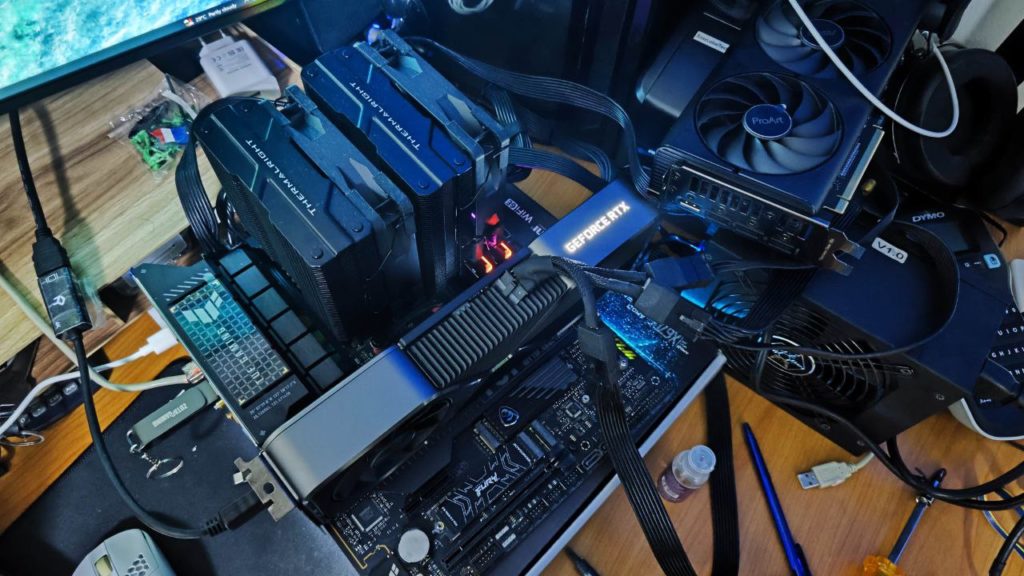
| Specs | Comparison System | Main System |
| CPU | AMD Ryzen 9 5900X | AMD Ryzen 9 9950X/ Ryzen 9 9900X / Ryzen 9 7900X, Ryzen 9 7900 |
| RAM | GSkill SniperX 3600MHz 16GB Kit @3600MHz | G.Skill Trident Z5 Neo RGB 6400MHz |
| Main Storage | Kioxia Experia M.2 500GB | MSI SPATIUM M480 PLAY 2TB |
| GPU | NVIDIA GeForce RTX 3080Ti Founders Edition | NVIDIA GeForce RTX 3080Ti Founders Edition |
| Motherboard | ASUS ProArt X570-CREATOR WiFi | ASUS TUF Gaming X670E-PLUS WIFI |
| CPU Cooler | AMD Wraith Prism | Thermalright Peerless Assassin (Black) |
| PSU | Cooler Master V1000 | Silverstone SST ST1200 1200W PSU |
| OS | Windows 10 64-bit | Windows 10 64-bit |
| PC Mark 10 Extended | Default | |
| 7-ZIP | Default | |
| HEVC h.265 Encoding/Decoding | Default | |
| Blender CPU BMW27 | Default | |
| Cinebench R20 | Default | |
| AIDA64 | Default | |
| Game Settings (1080p) | ||
| Far Cry New Dawn | High | DirectX11 |
| Deus Ex Mankind Divided | High | DirectX12 |
| Tom Clancy Division Ghost Recon Breakpoint | High | Vulkan |
| DOTA 2 | Default | DirectX11 |
| Shadow of the Tomb Raider | High | DirectX12 |
| World War Z | Ultra | Vulkan |
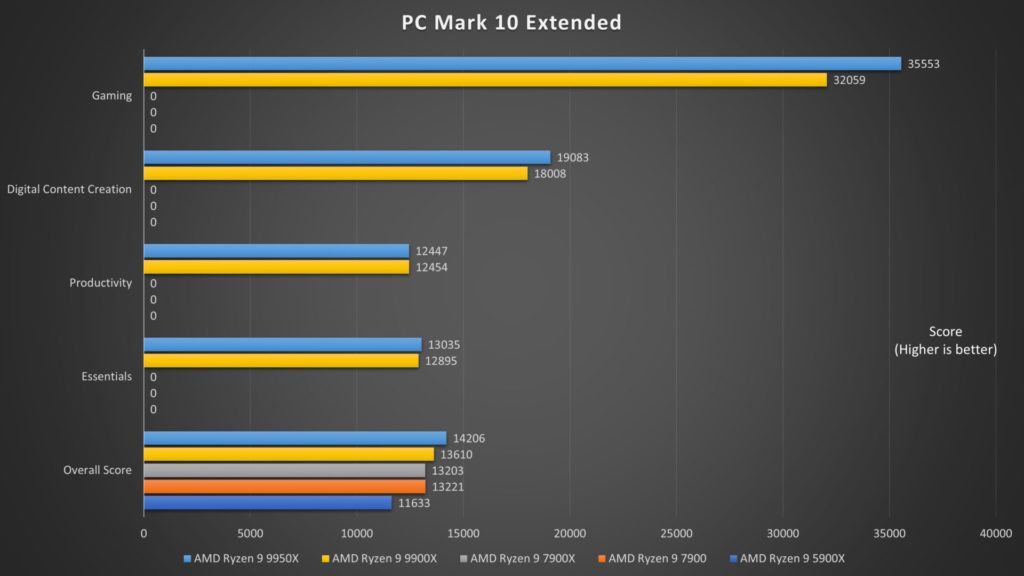 (We did not capture the details of the PC Mark Extended tests for previous gen Ryzen 9 models)
(We did not capture the details of the PC Mark Extended tests for previous gen Ryzen 9 models)
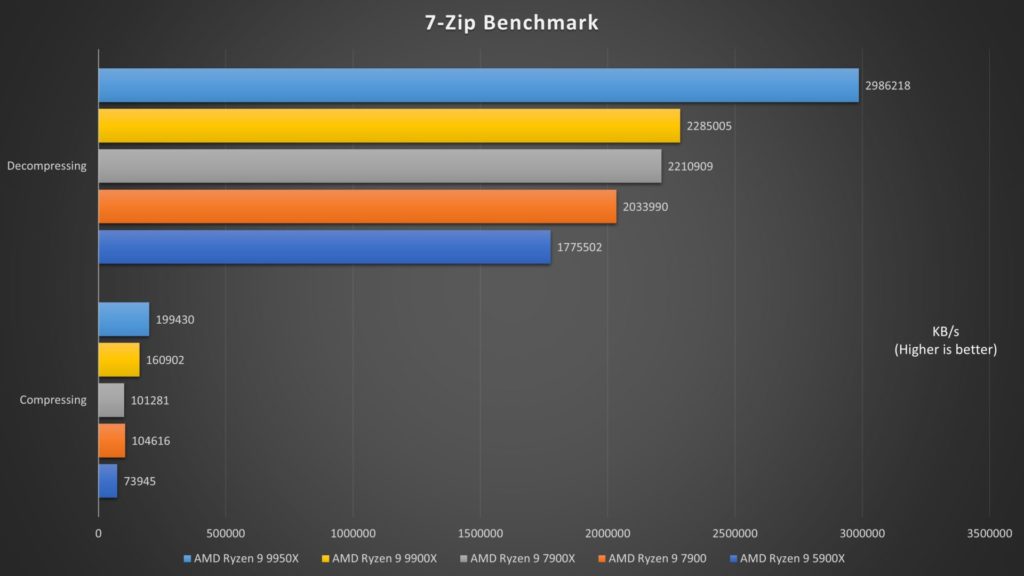
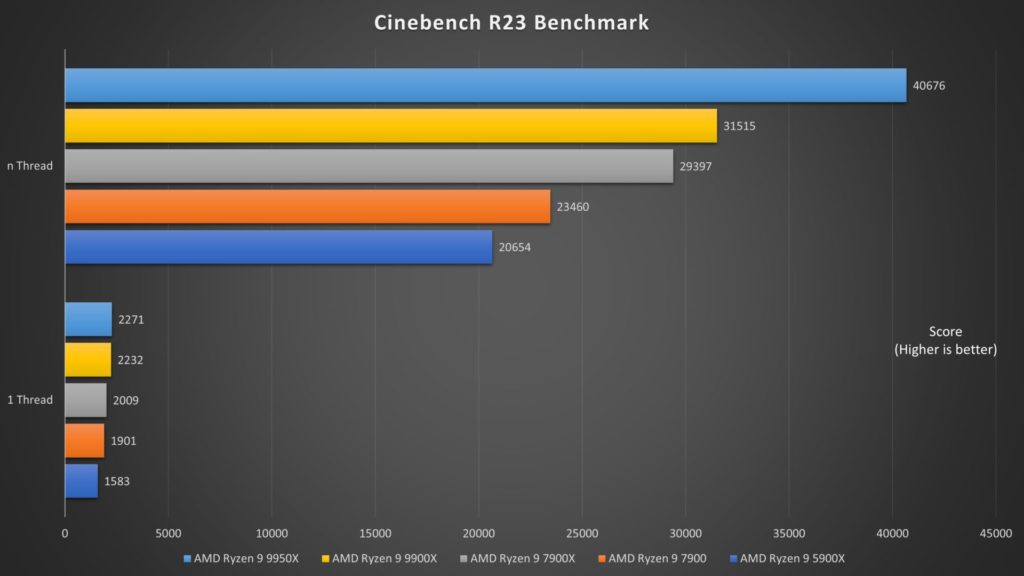



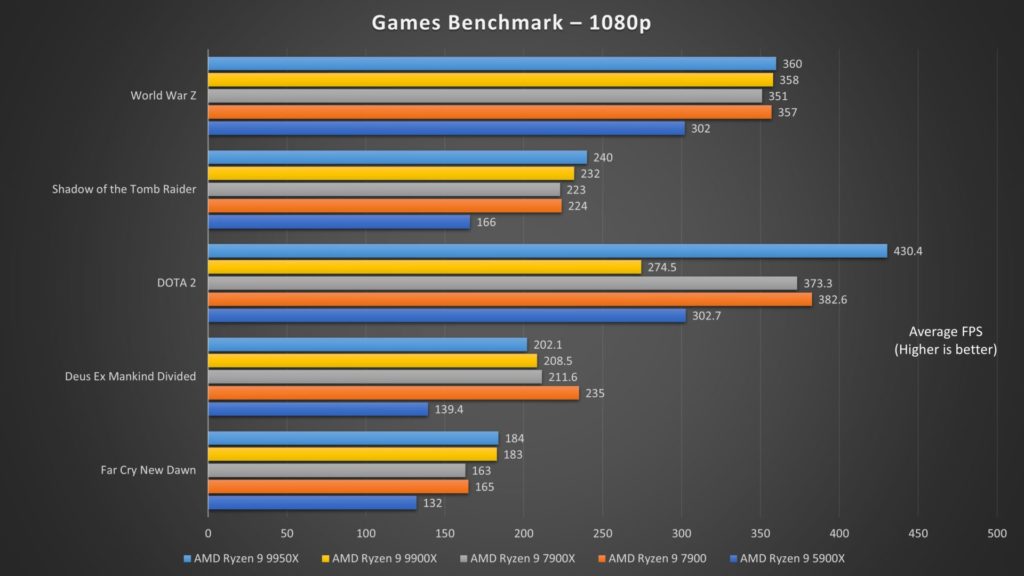


It’s obvious that the AMD Ryzen 9 9950X shines (it’s unfortunate that we’ve never had our hands on the Ryzen 9 7950X for comparison) as the processor that performs the best in most of the tests. However, to truly understand the generational improvements, we should focus on the results from the Ryzen 9 9900X and Ryzen 9 7900X. In overall system tests, Ryzen 9 9900X does perform better than its predecessors. However, the differences in games isn’t too significant.
What caught out eye is the Ryzen 9 9000 series’ power consumption on load. Compared to its previous generation, it runs so much more efficiently. This also translates to lower CPU temperatures, which means that you don’t really need to splurge on expensive CPU coolers. Even for our tests, we are just running the CPUs on a air cooler, and the system runs just fine.
Final Thoughts and Conclusion
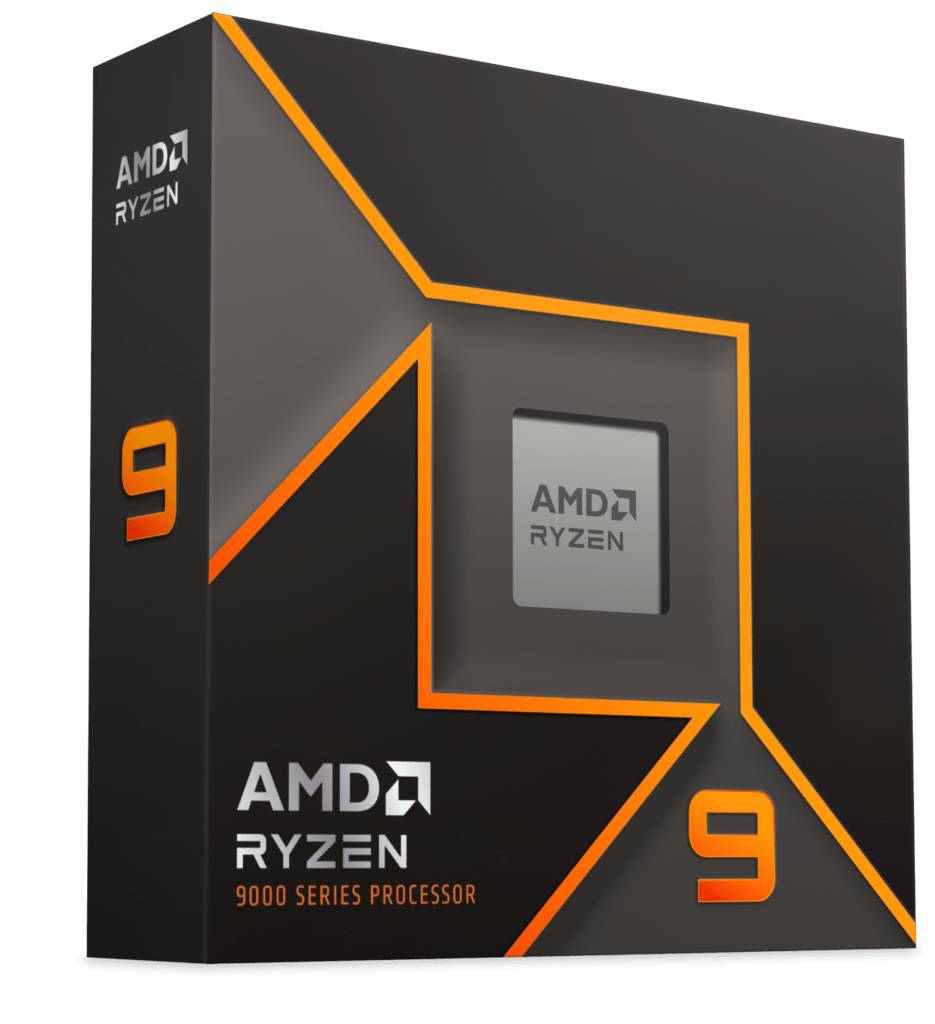 Did the Ryzen 9 9950X and 9900X blow our mind? I wouldn’t put it that way, but certainly, they are still one of the most performant consumer desktop processors in the market today. While improvements aren’t as significant as we hoped for, there are still some measured improvements. To give credit where it’s due, Zen 5 did bring about better performance.
Did the Ryzen 9 9950X and 9900X blow our mind? I wouldn’t put it that way, but certainly, they are still one of the most performant consumer desktop processors in the market today. While improvements aren’t as significant as we hoped for, there are still some measured improvements. To give credit where it’s due, Zen 5 did bring about better performance.
Regardless, we can see how AMD has set the stage for their next generation processors to perform so much better. By focusing on the efficiency of the processors, they have largely optimized their product. Zen 5 feels more than a Zen 4+ to me. Zen 6 “should” be something interesting to look out for.
Similar to my previous conclusion in the Ryzen 7 9700X and Ryzen 5 9600X review, I would recommend users from the Ryzen 5000 series to upgrade to the Ryzen 9000 series. You would really feel the difference in terms of system responsiveness and performance, thanks to the platform change from AM4 to AM5. However, if you currently own a Ryzen 7000 series processor, it seems that it could be just good enough to last you for another two years.


